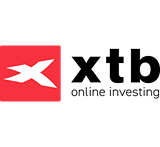The New York Stock Exchange, founded in 1792, is the largest stock exchange in the world by market capitalization. Located on Wall Street in New York City, the NYSE is known for its prestigious listings, including many of the largest and most well-established companies globally.
The exchange operates on a hybrid model, combining electronic trading with traditional floor trading, where designated market makers (DMMs) ensure liquidity and orderly trading.
Daily Movers – NYSE Listed Top 50
Top 5 Stocks Brokers:
Top 5 Forex Brokers:
Top 5 Crypto Brokers:
US Indices Featuring NYSE Listed Stocks
Dow Jones Industrial Average (DJIA): The DJIA, often referred to as “the Dow,” is one of the oldest and most widely followed indices in the world. It comprises 30 large, publicly-owned companies based in the United States, representing various industries. The DJIA is price-weighted, meaning stocks with higher prices have more influence on the index’s movement.
Russell 2000: This index measures the performance of the 2,000 smallest companies in the Russell 3000 Index. It is widely regarded as a benchmark for small-cap stocks, offering insight into the performance of smaller, more growth-oriented companies.
S&P 500: The S&P 500 index includes 500 of the largest companies listed on US stock exchanges and is considered one of the best representations of the US stock market. It is market-cap weighted, giving more significance to companies with higher market values.
Daily Movers – Indices
Various Ways To Access US Stock Market
Investors and traders from all around the globe seek exposure to US stocks, and fortunately there are plenty of options available. The most popular for the majority of those with longer-term outlooks is to hold direct stocks; but ETFs, futures, and indices are alternative methods to get a foothold in US markets.
The majority of the process involved in accessing US markets is similar regardless of where in the world you are, but there are some nuances on a country level.
Most commonly you will find things such as account types, tax treatment, or local regulations playing the biggest differentiator between global access to US stocks, and we outline some of those geographical differences in the guides below.














